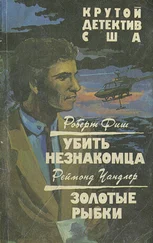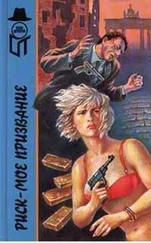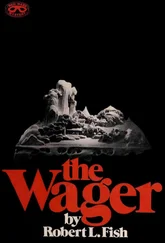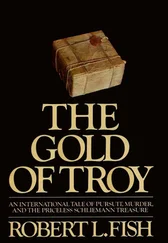“Ah, well,” Billy said philosophically, “we’ll be in Jo’burg in two, three days and you can do it all over again.”
“Can’t wait,” Jimmy said dryly, and then grimaced painfully as a bugler began blowing assembly, seemingly right into his ear. He tried to straighten up, squinting ahead into the setting sun as Jameson swung himself into his saddle and looked out over the assembled men, the sun at his back casting long shadows over the now-deserted campgrounds. Behind him and a little to one side, Luckner sat easily in his saddle, his face expressionless. A little behind him the company bugler sat, and Lieutenants Willoughby and White sat their mounts, while behind them the mule wagons with the tenting equipment stood waiting to go, their Kaffir drivers paying little attention to the assemblage. Their loads were light. Each trooper had packed one day’s rations, for supplies had been planned to be placed at fifty-mile intervals along the road to Johannesburg.
“Troopers!” Jameson called out in a loud voice. “This is the moment we have all been waiting for! I want to read you a letter I’ve received from the Reform Committee in Johannesburg!”
He reached into the top pocket of his uniform and withdrew the letter he had insisted upon receiving many months before. That afternoon, before packing his gear, he had taken pen and ink and carefully placed the date in the upper right-hand corner, December 29, 1895. The fact that it was December 29 when he penned the date, and Pitsani was a good two days’ hard riding to have been delivered from Johannesburg the same day, meant little to Jameson regarding the fictitious message. He was sure there would never be the slightest reason to ever use the letter beyond the use he was about to put it to. He cleared his throat and began to read.
“To Captain Jameson and his men:
“The situation in Johannesburg has now become intolerable. The cruelty of the Boer burghers, backed by their Government under the direction of the tyrant, Kruger, and the actions of the Johannesburg Police in their intolerant treatment of our men, women, and children, has passed endurance. Each day one hears the cries of innocent women and even babies as they are hounded, beaten, and even killed by the inhuman Boers. We beg of you to come to our assistance; we cannot long endure under these oppressive conditions. We pray you can find it in your hearts to come to our aid immediately, for Queen, for England, and for common human decency.
“Signed,
“The Reform Committee.”
Jameson raised himself in his saddle, his saber now drawn, raised in the the air, flashing in the last rays of the sun.
“We shall ride into Johannesburg and settle this matter once and for all! Men, are you with me?” There were a few rather embarrassed and drunken yells, but the response seemed to satisfy Jameson. He replaced the saber in its scabbard. “Then — troopers — mount!”
The rescuers of the women and children of Johannesburg were on their way.
The sinking of a shaft for a gold mine, Armando quickly decided, was quite a bit different from sinking a shaft in a diamond mine. The blue ground at Kimberley was a pipe, the core of an ancient volcano, and it ran vertically and therefore its location could be easily calculated and determined. The shaft, paralleling the pipe, was also sunk vertically, and horizontal chambers or tunnels were dug through to the blue ground at whatever level was desired. It was all relatively simple. The gold reef, however, was considerably different from a diamond pipe, for it ran at angles of varying steepness, and shafts had to be sunk through the rock to intercept the diagonal reef at various depths, and the reef mined for the gold-bearing rock in the immediate vicinity before sinking the shaft deeper to intersect another angled reef containing gold farther down. How deep one might go before failing to intercept a diagonal layer of gold-bearing rock nobody knew, but there seemed little doubt that the shafts would end up much deeper than any at Kimberley, and the problems, therefore, of sinking these shafts would be that much more complicated.
The shafts had already reached a depth of a half mile or more, and there was every indication that there still might be major gold deposits even farther down; as far as a mile or even two miles deep. And at those depths, nobody knew if they might not run into gold-bearing quartz that might yield an ounce, or even two ounces of gold per ton of rock. Or possibly three or more. There was no way of telling, but it was always the dream, the goad that drove men to probe deeper and deeper beneath the earth’s surface. And the farther down they went, the greater the problem, Armando knew, for the heat increased proportionately the deeper they went, and there would be the problem, not just of physically building shafts that deep, but of getting air down to cool the workers at those depths. Armando had been assured by the white gold miners that the Kaffir had no problem with heat as he had no problem with the cyanide solution, and while he knew nothing about the resistance of the Kaffir to the heat in gold mines, he knew there was a problem at the lesser depths in the diamond shafts, and he was sure it would be a greater problem here.
But for whatever purpose, the shaft of the mine he was inspecting was poorly constructed for such great depths, and the huge Angolan decided that before greater depths were attempted the shaft would have to be aligned to a far more accurate degree, and the cages in which the workers were dropped to the various levels to dynamite the rock loose would have to be reinforced and constructed of far stronger materials. The same was true of the cables that held the cages in the shaft, and raised and lowered them by use of huge steam-driven geared winches that were mounted above each mine shaft.
The large Angolan stepped from the cage he had been using to inspect the shaft, closing the protective gate behind him, and breathed deeply of the clear, high-altitude air. There was a lot of work to be done if he was going to be responsible for the deepening of the shafts, but it was work he loved and he wondered if he could ever adequately thank Barney Barnato for having rescued him — “rescued” was the only word he could think of — from the circus and the dreary task of having to beat some poor soul into submission several times a week just in order to eat. Now Armando ate as well as he wished, and maintained his strength through honest work, which was the best way. He waved to the donkey-engine operator to indicate his use of the cage was finished for the day, and climbed into his trap, touching the horses with the whip, prepared to go to Barney’s office and make his report. And then pulled up short as another trap appeared around a corner of the narrow dirt road, blocking his passage. He smiled to see the occupants, for they were his boss, Barney, and Barney’s lovely wife, Fay, made even more beautiful, Armando thought, by being several months pregnant. She reminded him of his mother, who, while never being pregnant since he could remember, had been big and soft, and he often missed her and wondered why he had never gone back to Angola to visit her before her death. The reason, of course, had been his father, but those were aimless thoughts. Armando put them aside as he climbed down and walked over to the other trap.
“Hello, Miz Barnato. Hello, Barney. I was jus’ now goin’ to you office to tell you.” While Armando still had a fairly heavy Portuguese accent, his command of the English language was quite good. He shook his head sadly. “No so good news, I am afraid.”
“What kind of bad news?”
Armando shrugged. “It mean lots of work, Barney. I t’ink maybe the shaft too deep now for the cable and the winch. Should already bot’ be bigger, I t’ink, an’ cable should be steel, not rope. Also shaft should be much more straight. I dig a shaft like this in Kimberley, nobody go down. Lucky cage don’ hang up goin’ down. You wanna see? I show you.”
Читать дальше










